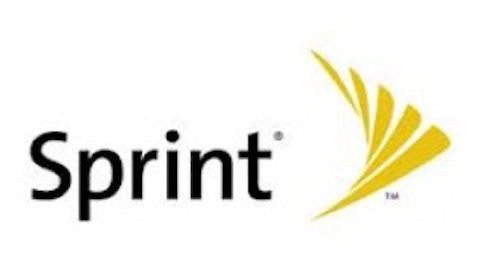
The best part is that happiness has a real world translation when it comes to the business world as well. A happier and more optimistic society has a better chance of success and growth than an unhappy society.
Just yesterday, I examined the world’s 10 most pessimistic countries according to a recent poll by Gallup, and we learned that many are from debt-riddled Europe. With little prospect of a rebound anytime soon and high unemployment rates, there’s not many reasons to be optimistic. However, there are two sides to this coin.

Source: Sarah Reid, Flickr.
The happy truth
Other regions of the world are on the cusp of a huge growth spurt, and many citizens of those countries feel quite confident that they’ll be better off five years from now. Like the survey we looked at last night, Gallup based its findings on the Cantril Self-Anchoring Striving Scale that ranks respondents views of the present and five years into the future with a rating scale of 0 to 10 (10 being the most optimistic rating). Yet again, the findings weren’t a huge surprise, but they do lend credence on a few ways that you could use this optimism to your advantage in the investing world.
Here are the 10 most optimistic countries, according to Gallup:
| Country | % Optimists |
|---|---|
| Burkina Faso | 95% |
| Comoros | 95% |
| Niger | 94% |
| Benin | 94% |
| Guinea | 94% |
| Somaliland Region | 94% |
| Chad | 93% |
| Rwanda | 93% |
| Senegal | 90% |
| Turkmenistan | 89% |
Source: Gallup.
There’s no need to break out the Magic 8-Ball here to see that Africa is a big point of optimism over the next five years. I have three contentions as to why optimism in this region remains so high.
For starters, some African nations don’t have anywhere to go but up. Burkina Faso, for example, is among the poorest nations in the world on a per-capita GDP basis. However, from 2004 through 2012, its GDP has grown by nearly 145%. Although it represents just a minuscule amount of worldwide GDP, this can represent a huge jump in employment and quality of life for residents of Burkina Faso.
The second contention for optimism in this region relates to the largely untapped mineral resources of Africa. One source of potential growth is oil, which can be quite abundant in the some of the aforementioned countries. Chevron Corporation (NYSE:CVX), for instance, undertook two projects in Chad beginning in 2000: the development of the Doba crude oil fields, and the building and operation of a system of pipelines capable of delivering that oil to a transport terminal in Cameroon. Robust oil prices can certainly pack a punch for African economies, and it certainly has helped attract big business partners such as Chevron.
The third reason I see optimism growing is that multinational corporations are turning to Africa for its rapid growth potential. Even excluding oil and mining, which are two big reasons multinationals invest in Africa, other sectors of the African economy are ripe to take off. Perhaps no sector exhibits such promise as financial services. Credit payment facilitator MasterCard Inc (NYSE:MA) is counting on Africa to drive its bottom-line growth for decades to come. It has spearheaded a 13 million-card rollout in Nigeria of National Identity Smart Cards and is working on getting some 68% of unbanked South African citizens into the world of plastic.
A smart way to play this optimism rather than guessing which one company might benefit the most is to turn to the ETF realm. Buying a basket of African stocks would spread out your risk and presumably give you a better chance at success. The Market Vectors Africa Index ETF is one such basket ETF that I recently trumpeted as an intriguing option over the long run. It’s actually heavily weighted to the financial sector (about 37% of its holdings), but it’s diversified enough that the fund holds 109 separate companies and pays out a 3.5% yield!

Source: White House, commons.wikimedia.org.
Don’t forget about domestic markets
Although the U.S. isn’t among the most optimistic countries in the world as named by Gallup, it’s hard to negate the idea that optimistic investors can’t push the markets even higher. Optimism can drive citizens to invest, and that, in turn, can push an already extended market even higher.
For the Dow Jones Industrial Average and broader-based S&P 500 the reality of solid economic data is already there. July’s National Association of Home Builders/Wells Fargo & Co (NYSE:WFC) Housing Market Index came in at a reading of 57, the highest reading since Jan. 2006. Consumer delinquencies on credit cards are also either at or near historic lows for all the big credit service lenders. In sum, the housing market is on solid footing, and for money center banks it’s back to business as usual.
Furthermore, the unemployment rate, while not exactly plummeting, has been on a steady downslope, as optimism has spread to enterprises that have added to their payrolls accordingly.
Another aspect you might consider is that even with Africa being the most optimistic region, nearly all of the Dow’s 30 components understands this, and a good portion of the S&P 500’s have plans to expand to Africa, or have already opened up shop there.
U.S. businesses are certainly going where the growth is, and it appears you can take advantage of that by investing in individual companies with African continent exposure, picking up some African ETFs, or, if you’re really risk-averse, banking on the U.S. markets in which many of the largest companies by market value already have exposure to growth in Africa.
The article These Are the World’s 10 Most Optimistic Countries originally appeared on Fool.com and is written by Sean Williams.
Fool contributor Sean Williams has no material interest in any companies mentioned in this article. You can follow him on CAPS under the screen name TMFUltraLong, track every pick he makes under the screen name TrackUltraLong, and check him out on Twitter, where he goes by the handle @TMFUltraLong.The Motley Fool owns shares of, and recommends, MasterCard and Wells Fargo. It also recommends Chevron.
Copyright © 1995 – 2013 The Motley Fool, LLC. All rights reserved. The Motley Fool has a disclosure policy.





